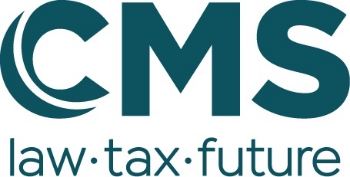In April 2021, the chairman of the Economic Affairs Committee of the Parliament of Ukraine noted that “industrial parks are the vaccine for the Ukrainian economy”. At that time, Law No. 1710-IX “On Amendments to the Law of Ukraine on Industrial Parks”, the first step in a row of developments in this area, was passed in its first hearing. These changes amended the procedure for registering industrial parks and provided an impetus for industrial park developers.
The newly established industrial parks under Law No. 1710- Maramures and L-Town in Zakarpattia and Kyiv oblasts IX can yet take advantage of full or partial compensation of interest rates on loans for equipping or carrying out business and the reimbursement of grid connection costs. Full overview of these developments are available at this link.
The Ukrainian government continues dealing with drafting acts necessary for the execution of the above law, one of which is the draft Resolution of the Cabinet of Ministers of Ukraine “On the Procedure for the Transfer Funds On the Construction of Infrastructure Adjacent to Industrial Parks”.
However, to become competitive in the global market of industrial parks, Ukraine needs to stimulate this sector further. For these purposes, on 21 June 2022 the Verkhovna Rada passed draft Law “On Amendments to the Tax Code of Ukraine Regarding the Establishment of Favourable Conditions for Industrial Parks in Ukraine” No. 5688 (the “Draft Tax Law”), and the draft Law “On Amendments to Article 287 of the Customs Code of Ukraine Regarding Establishment of Favourable Conditions for Industrial Parks in Ukraine” No. 5689 (the “Draft Customs Law”). The Draft Tax Law will come into force once it is signed by the President and published, and the Draft Customs Law will come into force from 1 July 2022.
Under these draft laws, the participants of the industrial parks are exempted from income tax for ten years, and municipal authorities are empowered to provide tax incentives for land fees and real estate tax. Additionally, the participants are released from the value-added tax and import duties on the equipment to be supplied for the industrial parks’ activities.
Income tax, land and real estate fees
The Draft Tax Law introduces zero-income tax for participants of industrial parks for ten years from the first day of the first month of tax calendar Q, during which the participant applies to the tax authorities. The application is considered accepted under tacit consent when the ten-day period expires. The release is applicable to participants in the following industries:
- production of food, soda and bottled water;
- production of textile, clothes, and leather products;
- manufacturing paper and paper products, pharmaceutical products, rubber and plastic products, chemicals and chemical products, non-metallic mineral products, and wood products, including furniture and straw and plaiting materials;
- production of metallurgical production, fabricated metal products, machinery and equipment, including electrical and transport;
- production of computers, electronics, optical goods, and transport vehicles; and
- collection of waste materials and their restoration.
The Draft Tax Law applies only to: (i) participants of a registered industrial park, which obliges participants to reinvest costs on zero-income tax in the industrial facilities of the park during the year following the year of exemption. If the participant fails to do so, it cannot be further exempted from income tax, and it must pay a fine; and (ii) business activity that is carried out in this park. Costs not charged on income tax cannot be used for dividends.
However, there is an exhaustive list of companies that must pay income tax on common grounds:
- gambling companies and those that have such companies in the corporate structure chart;
- offshore companies; and
- companies registered in a jurisdiction included on the FATF list.
Finally, given the reform of the decentralisation in Ukraine, new provisions of the Tax Code of Ukraine empower municipal authorities to determine the rates of land and real estate fees.
Value-added tax and import duty
The Draft Tax Law exempts participants from value-added tax on equipment if: their activity is carried out in the abovementioned industries; not more than three years have passed from the equipment’s production to its import; and the imported equipment is not from Russia. A participant—only one that can reap the benefits regarding value-added tax—cannot dispose of this equipment for five years, lease it out, or transfer it in any other way for use by third parties.
The same conditions and limitations apply to import duty. Alongside this, under the Draft Customs Law, import duty easing criteria is slightly different and, instead of industrial application, there are prescribed specified types of equipment that are exempted from it, such as boilers and gas generators, steam turbines, pumps, air compressors, equipment for alcohol drinks and measuring equipment, etc.
Further legal developments
Ukraine, on the way to upgrading “the vaccine”, drafted a strategy of the measures necessary for this upgrade. The draft strategy “On Development of Industrial Parks Until 2030” envisages:
- the establishment of 30 industrial parks with two participants and five industrial parks with more than ten participants;
- attracting related investments of USD 8bn;
- the development of greenfield and brownfield projects; and
- the establishment of at least one expert association that represents the interests of one-third of all parks in Ukraine.
Draft Strategy “On Development of Industrial Parks Until 2030”.




